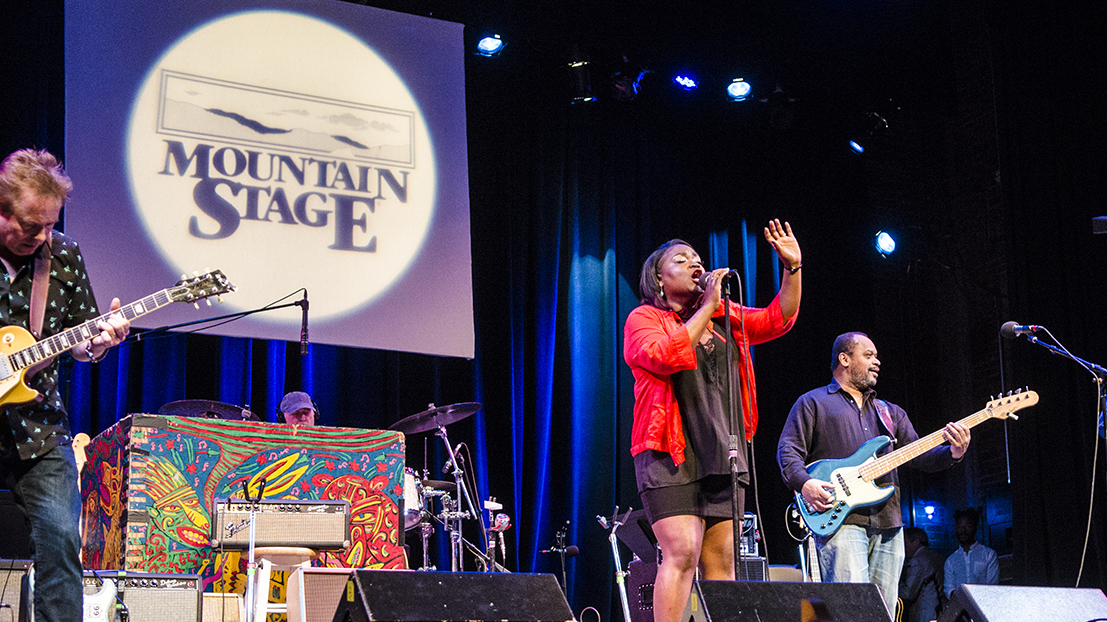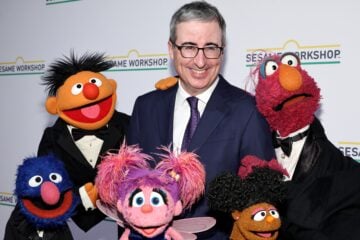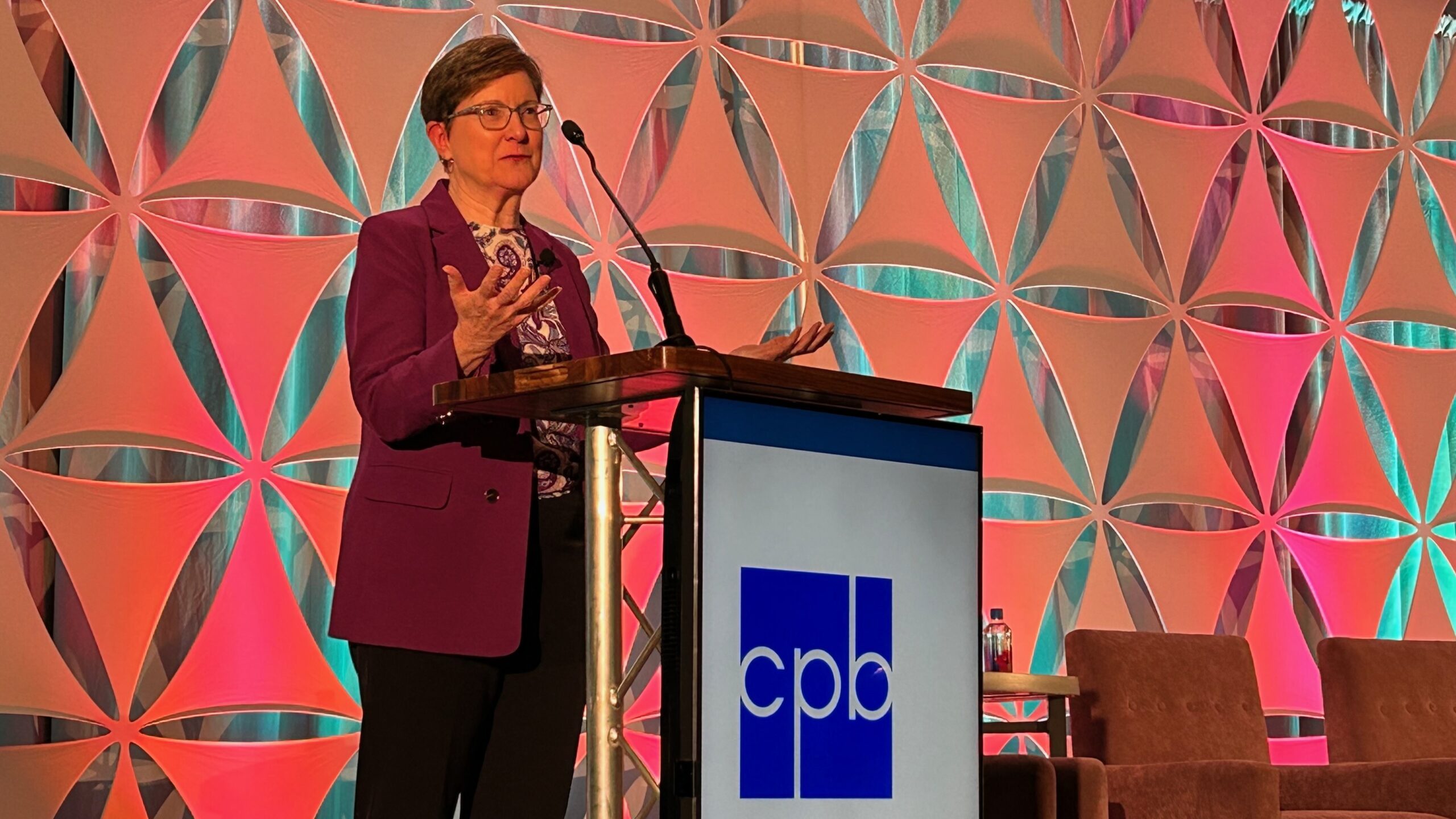Ten lessons from West Virginia Public Broadcasting’s near-death experience

Brian Blauser
Shemekia Copeland and her band perform on "Mountain Stage," a WVPB live music show that was targeted for cuts in the battle over West Virginia's budget.
It started with a PowerPoint slide titled “Responsible Cuts.”
This is how we found out, in February, that the Gov. Jim Justice’s first proposed budget would zero out West Virginia Public Broadcasting’s state funding.
His staff presented the slide to reporters during a briefing about proposed budget cuts. Our $4.6 million appropriation was the second-largest cut in the governor’s proposal.
The next four months were a real roller coaster ride for our staff and supporters, what one reporter called, “the noncommercial version of Defending Your Life.”
The context here is important. A severe decline in the coal industry threw West Virginia into recession and created an estimated $400 million budget deficit.
WVPB is a state licensee, and state funding made up about 45 percent of our budget. The possibility of losing that much money, overnight, endangered our very survival.
We immediately launched a “Protect WVPB” campaign on air and online. Our supporters flooded the statehouse with calls and emails.
Within a month, the governor revised his proposal and asked lawmakers to restore all our state funding. But then, Republicans in the state Senate proposed zeroing us out in their version of the budget.
In the end, we preserved our state appropriation — but it was reduced by 22 percent — almost $1 million. We had to do hard things, like lay off 5 employees and say goodbye to others who retired. We also preserved state funding for Mountain Stage, our live radio performance series distributed by NPR, but the show team lost its part-time digital staffer.
Many things are still undecided. At one point, the governor suggested WVPB might be better off at a land grant university. With support from CPB, we’ve hired Public Media Company to map out different governance options, as well as ways to boost revenues and efficiency.
We emerge from this experience leaner, more independent and (I hope) wiser. We just closed out a record fiscal year of fundraising. Member revenue is up 23 percent and membership is up 16 percent.
Many public broadcasters are veterans of this fight. Your advice helped get me through this. This article is my attempt to synthesize your wisdom, and return the favor.
Here are 10 things we learned from our near-death experience:
1. Don’t put too many eggs in one basket.
We learned how dangerous it is to depend on one funding source for almost half your revenues — especially when that funding source is so easily and quickly eliminated.
This reduction in state funding has led us to diversify our revenue streams, something we’ve needed to do for a long time.
2. Educate new leaders early.
In November, West Virginians elected a governor with no previous political experience. Meanwhile, new leaders rose to power in the state Legislature.
Eventually, I met with each of them and/or their key staff — but only after the governor’s original proposal to zero us out. I learned they did not fully understand who we were, what we did and how we were funded.
I wish I’d done more before the crisis. My biggest mistake was not being aggressive enough in trying to meet right away with that new leadership.
3. We get by with a little help from our “Friends.”
Early on, we decided our supporters were the best spokespeople for our cause. Fortunately, we have three strong, independent boards who were willing to help — a governing authority, a foundation and a Friends group.

Friends of WVPB Chair Susan Hogan in a video produced for the campaign.
Members of all three groups made our case to key lawmakers, state officials and other stakeholders. They starred in many of our “Protect WVPB” spots.
Station personnel are prohibited from lobbying, so our independent Friends group hired a lobbyist and a public relations firm to work on our behalf. At the statehouse, in town hall meetings and on Facebook — our fans were everywhere, and they were dogged.
4. It’s always personal.
West Virginia is a small state. Eventually, you can find a personal connection with anyone.
In the middle of our funding debate, Gov. Justice held a special event for children with autism. My wife encouraged me to go with our son, Max.
The governor told a touching story about a close relative who has autism. Then, he invited the kids to come sit on his lap and take a picture with him, kind of like Santa Claus.
Max is a notoriously bad photo subject, but something about the governor put him at ease. Now, I have a framed, signed picture of a smiling Max on the governor’s lap.
I left with a new understanding of our governor — and I hope we left a positive impression on him.
5. Don’t be ashamed to ask public media colleagues for help.
I know this is stupid, but asking for help felt like an admission of defeat.
Fortunately, I had several friends who reached out to me — other general managers, as well as leaders at PBS, NPR, CPB and other public media organizations. They were universally supportive and non-judgmental.
Many of you have been through similar experiences. New Hampshire Public TV’s Peter Frid gave crucial advice on their successful spin-off from state funding. Idaho PTV’s Ron Pisaneschi shared his experience, along with a detailed business analysis that convinced Idaho lawmakers to preserve state funding.
6. Get serious about telling your own story.
We’ve always been better at telling other people’s stories than our own.
This crisis changed that. Our “Protect WVPB” campaign flooded our airwaves and social media with positive messages about what we do.
We focused our messaging around three themes familiar to all of you — education, public transparency and emergency communications — and one that is unique to us, Mountain Stage.
For more than three decades, Mountain Stage has brought live music performances from West Virginia to public stations all over America. As host Larry Groce said in his video for the campaign, “Mountain Stage is a beacon to the world that says ‘Good times, good quality, come to visit.’”
This approach worked. Supporters inundated lawmakers with calls and emails, and our fundraising and membership rose to record levels.
Now that we’ve learned the power of promotion, we are determined to keep it up.
7. “I’m not dead!”
The down side of pulling the fire alarm is, people can start to think the building is burning down.
It reminds me of the “Bring Out Your Dead” scene from Monty Python and the Holy Grail. The old man insists, “I’m not dead!” John Cleese thinks otherwise — and soon perception becomes reality.
It’s a fine line between sounding the alarm and being written off for dead. We’ve worked hard to let people know we’re still healthy and strong.
8. Never let a crisis go to waste, part one: Fundraising.
We knew that no matter what happened with our state funding, raising more money from our members would put us in a stronger position.
During the crisis, we set an ambitious fundraising goal — $500,000 — in our “Protect WVPB” membership campaign.
Instead, we raised more than $600,000. We gained more than 1,500 new members in just four months.
Many of these new members are sustainers, so we believe they’ll stay with us. We’re planning to call them personally and send them notes through our “Thank-a-thon” next month.
9. Never let a crisis go to waste, part two: Sharpen your mission.
We knew raising more money would not be enough — we had to save money too, and fast.
Fortunately, the crisis provided an opportunity to make some hard but necessary decisions.
We’re taking a tough look at our tower network. We’re streamlining master control. We’re changing our TV and radio lineup. And we’re not shy about asking our vendors for trades and donations instead of cash.
More than that, we want to make sure our mission and strategy are forward-looking and not based on nostalgia. Over the next year, we’ll look at our programs, services and facilities and ask, is this crucial to our future? What needs to change?
10. Communicate, communicate, communicate.
In the middle of the budget crisis, we could go days or weeks with no news. During one such news vacuum, a rumor spread around the Capitol that we planned to cancel our extensive legislative coverage. We had to work hard to quash it.
I learned that you could never communicate too much, even if the message is, “Nothing new to report. Hang in there.”
In-person communication is best, even if it means spending time on the road. People want to look you in the eye when you deliver important news.
Bonus lesson: Take care of each other.

Be gentle with yourself and your colleagues during a crisis. You’re all scared, tired and not always your best self.
This struggle is not over. We will always have to educate others about what we do, and why we deserve taxpayer support.
The good news is: We know we can survive this and come out stronger on the other side.
Scott Finn is CEO of West Virginia Public Broadcasting.






The financial well-being of West Virginia Public Broadcasting is a “quality of life” issue, as far as I’m concerned. When my family moved from Rockville, Maryland, to the Bluefield, West Virginia, in 1974, I found myself at a loss of quality radio … until one day I stumbled across West Virginia Public Radio, and it became my connection to the outer world.
If you want people to relocate to West Virginia, especially people who are well-educated and culturally aware, you’ll want to make sure you have a healthy, high quality public broadcasting network as an incentive. It’s one of the things people look for.
At this time of the year the congregation I attend on Sunday canvasses for new members and increased pledges. When I was approached I had no difficulty telling my friend and anyone who’d listen that I received more sustaining spiritual support from WVPublic than I do from the pulpit. The short explanation is that the message from the pulpit is only there for limited consumption and WVPublic is there for me and anyone who wishes to listen, 24/7. I wish everyone I knew who listens and depends on WVPublic to maintain their spiritual equilibrium and mental health (to sustain their orientation) would read this excellent article. You can be sure I’ll be carrying a few copies with me for distribution from now on.
Your failure to broadcast all Presidential press conferences, speeches , announcements directed at informing American of the war on corona virus is unacceptable . No donation from me. Your are in my opinion violating your charter. We get 4 hours of classical music instead of war alerts and health warnings during this
Crisis.